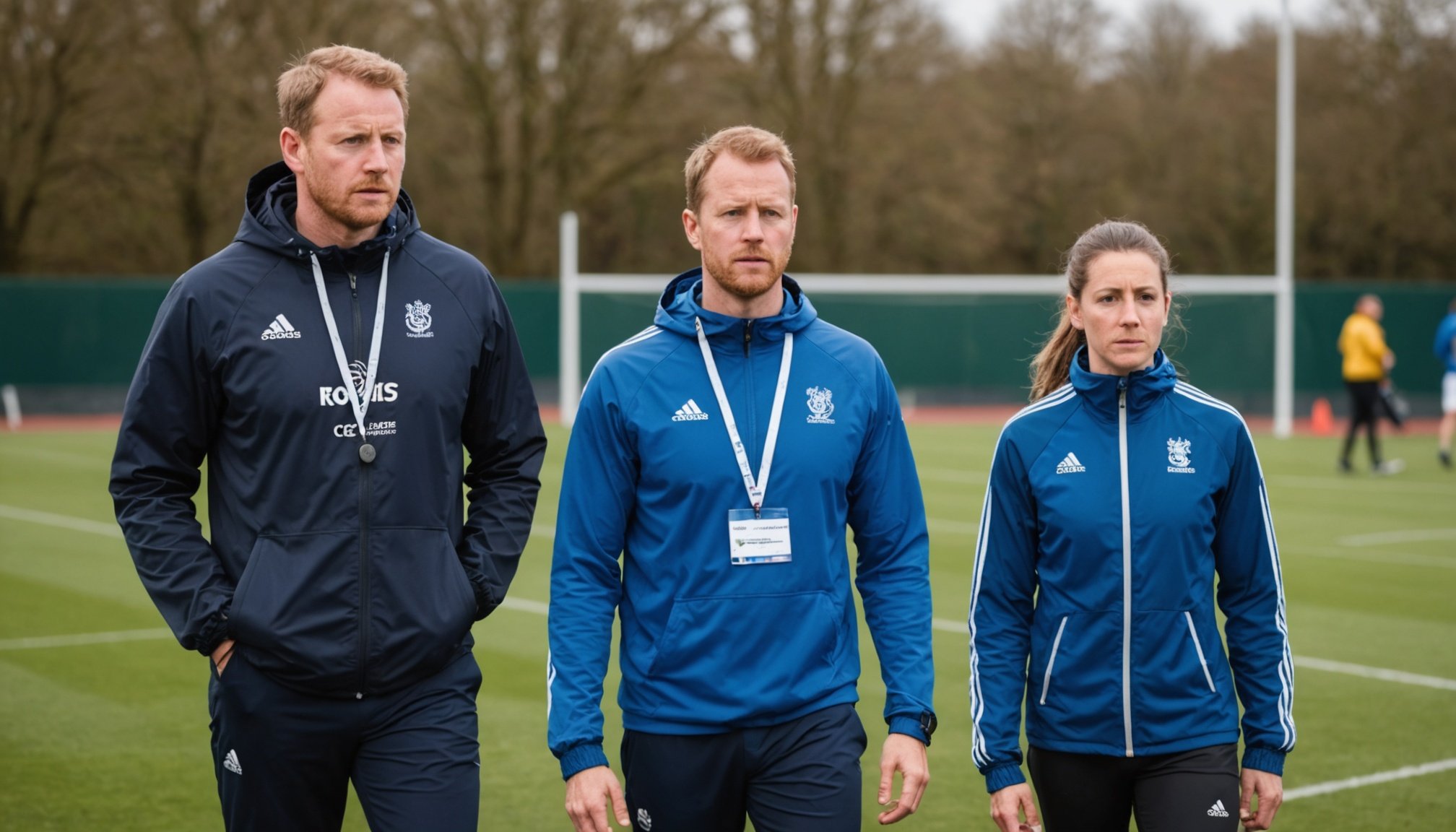Importance of Mental Health in Track and Field Coaching
Understanding the importance of mental health in track and field is crucial for both athletes and coaches. Mental health significantly impacts athletic performance. When athletes struggle with mental health, their concentration, motivation, and ability to handle stress can be adversely affected. Many athletes face challenges such as anxiety, depression, and burnout. These challenges can hinder performance and overall well-being.
Coaches have a vital role in supporting athletes’ mental wellbeing. A keen awareness of an athlete’s mental state enables coaches to tailor their coaching strategies accordingly. They can act as a safeguarding pillar, providing a supportive environment that encourages athletes to speak up about their mental struggles without fear of judgment. Implementing mental health strategies within coaching practices can bolster an athlete’s performance.
In parallel : Crafting a championship environment: effective approaches for uk sports clubs to foster a thriving team culture
Moreover, coaches can initiate open dialogues about mental health to normalize conversations around it. Educating themselves on common mental health issues faced by athletes and collaborating with mental health professionals can enhance their ability to support their team. A proactive approach to mental health not only aids in the development of healthier athletes but also cultivates a team atmosphere grounded in mutual support and understanding.
Evidence-Based Mental Health Techniques
Coaches can greatly enhance athletes’ performance by integrating evidence-based techniques into their coaching strategies. One powerful tool is cognitive-behavioral techniques, designed to develop athletes’ mental resilience. These techniques help athletes manage negative thoughts and emotions, often using methods like positive self-talk and visualisation exercises to focus their minds.
This might interest you : Revamping tennis courts: an essential guide for uk clubs to reduce player injuries
Mindfulness and relaxation methods are also crucial components. These practices can be incorporated into athletes’ routines to manage stress. Techniques such as deep breathing, progressive muscle relaxation, and meditation help athletes maintain calmness and clarity, even under pressure.
Setting clear and achievable goals is another effective strategy that boosts both motivation and focus. Coaches can aid athletes in creating realistic targets, breaking larger goals into more manageable steps, allowing athletes to track their progress and stay motivated. These goal-setting strategies not only enhance confidence but also contribute to an athlete’s mental health by providing a structured path to success.
By applying these evidence-based mental health strategies, coaches foster a more focused, resilient, and motivated mindset in their athletes. Adopting these methods prepares athletes mentally and equips them with the psychological tools needed for peak performance.
Practical Tips for Coaches
Incorporating mental health integration into coaching practices can profoundly influence athlete engagement. As a coach, embedding simple yet effective mental health exercises into daily routines can bolster athlete engagement significantly.
Daily Mental Health Practices
Implementing brief mental health exercises daily can make a difference. Consider starting sessions with deep breathing exercises or short mindfulness practices. Scheduling regular mental health check-ins during training ensures you keep track of athletes’ well-being. Encouraging open team discussions about mental wellbeing further reinforces a supportive environment.
Using Feedback Effectively
Effective use of feedback is a cornerstone of positive coaching strategies. By providing constructive feedback, coaches can nurture resilience and boost confidence. Always strive to create a supportive environment where athletes feel safe to voice concerns. Developing strategies like positive reinforcement can go a long way in encouraging athletes and fostering sustained athlete engagement.
By integrating these coaching tips into your routine, you can play a pivotal role in supporting athletes’ mental health while enhancing their overall performance. As a result, teams can thrive in a compassionate atmosphere that prioritises mental wellbeing.
Case Studies and Real-Life Examples
Exploring case studies provides invaluable insights into the tangible impact of mental health strategies in sports. Successful UK coaches have effectively integrated mental health approaches into their coaching strategies, demonstrating marked improvements in athlete performance. These coaching success stories underline the critical connection between mental health and sports.
One notable case involves a UK track coach who prioritised mental health integration, resulting in higher athlete engagement and reduced burnout. His methods included regular mental health check-ins, which fostered open communication and allowed athletes to express concerns without stigma. Such an environment promoted resilience and team cohesion, showcasing the direct correlation between mental health and athletic success.
Testimonials from athletes further attest to these benefits. Many express increased motivation and focus when mental health is prioritised, thanks to personalised support that goes beyond physical training. These real-life examples affirm that when mental health is addressed holistically, athletes perform at their best, both physically and mentally.
By examining these stories, it becomes clear that adopting inclusive mental health strategies is not just beneficial but essential. Coaches can learn from these examples to enhance their own programs and further support athletes in achieving peak performance.
Integrating Mental Health Strategies into Training Programs
Adopting systematic approaches to training integration can revolutionise mental health in sports. Coaches should craft programmes that weave mental health practices seamlessly into athletic routines. Begin with a step-by-step approach: introduce mental wellbeing strategies like mindfulness exercises, gradually increase complexity, and ensure consistency.
Collaborating with mental health professionals is crucial. They can provide tailored advice and resources that align with athletic goals, ensuring both mental and physical peak performance. Mentorship from these professionals guides coaches in nurturing athletes’ holistic development.
Resources for ongoing education and training play a pivotal role in program evolution. Websites, workshops, and seminars offer invaluable insights into emerging mental health strategies. These educational tools equip coaches with the latest knowledge, enabling them to adapt their methods and stay relevant.
Regular programme evaluations ensure that mental health integration remains effective. This involves gathering feedback from athletes, adjusting techniques, and maintaining a flexible coaching approach. Through intentional integration, training programmes enhance athletes’ resilience and mental strength, paving the way for success in track and field. Thus, the synchronisation of athletic and mental health practices not only fosters personal growth but also cultivates a supportive and dynamic team environment.
Expert Insights and Interviews
Gaining insights from seasoned UK track and field coaches offers profound perspective on mental health’s role in athletics. These experts underscore the pivotal importance of crafting an environment where athletes feel comfortable discussing mental wellbeing. They emphasize the necessity for coaches to balance physical training with mental health strategies to ensure holistic athlete development.
Interviews with mental health professionals reveal tailored best practices. Professionals advocate for an integrative approach where mental training is as routine as physical workouts. For instance, incorporating mindfulness sessions and cognitive-behavioral exercises weekly supports athlete resilience under competitive stress.
Looking ahead, these experts predict that the intersection of mental health and sports will see innovative strategies. Embracing technology, such as mobile apps for mental health monitoring, may soon be commonplace. There is also a growing advocacy for developing personalised mental health plans that align closely with individual athletic goals.
Through these interviews, it is evident that prioritising both mental and physical health ultimately leads to a thriving athletic career. Coaches are encouraged to adapt and initiate these practices actively, preparing athletes not only for the challenges within their sport but in life.





